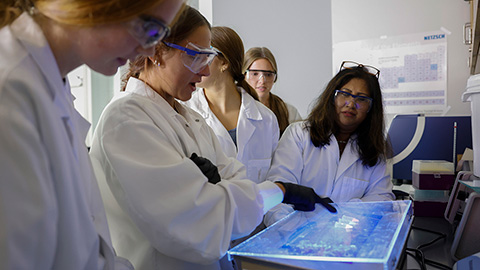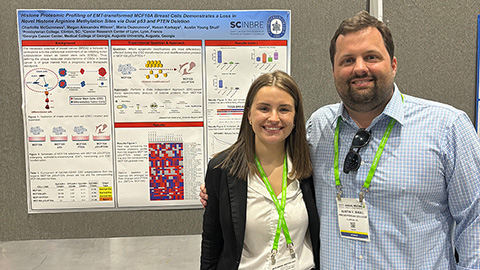Response to Supreme Court ruling on affirmative action
The U.S. Supreme Court ruling on Thursday on affirmative action raises significant concerns among advocates for diversity, equity and inclusion, and against discrimination, including the members of American Society for Biochemistry and Molecular Biology’s Maximizing Access Committee, Public Affairs Advisory Committee and Education and Professional Development Committee.
In a 6–3 decision, the high court found that the use of race as a factor in undergraduate admissions by Harvard University and the University of North Carolina violates the Equal Protection Clause of 14th Amendment. The ruling overturns legal precedent that allowed institutions of higher education to consider race as one of the many factors in a holistic admissions process.
Affirmative action has been a vital tool used to rectify the historic and persisting system of discrimination that promotes the exclusion of U.S citizens, thereby creating the circumstances for their identification as “historically-excluded, underrepresented populations.” In other words, affirmative action was designed to include the citizenry who had been systemically excluded, thereby opening the door of opportunity so that their capabilities and excellence would be acknowledged and allowing fair competition in education and in employment.
Affirmative action is important not only for historically marginalized individuals but also for all in the educational space. Diversity makes us stronger — as individuals, as scientists and as a community.
This court decision is an enormous step backward, and the denial of opportunities is reminiscent of a bygone era.
Many scholars, students, and educators — especially those from marginalized backgrounds and identities — may feel that the overturning of such a long-standing policy, at a time when it remains sorely needed, means our nation and those in power no longer acknowledge their existence and experiences.
The ASBMB and others in the biochemistry and molecular biology community acknowledge systemic inequities in STEM and will continue to work toward their elimination. We strongly support our colleagues and young scholars who have thrived and contributed greatly to the scientific enterprise, despite the barriers and inequities that they have faced.
The ASBMB will continue to advocate for and fight for those whose voices are not being heard right now. Protecting and increasing diversity, equity, inclusivity, and accessibility is at the core of the society.
Finally, we reaffirm our commitment to ensure that all ASBMB events, initiatives, awards and programs will strive to enhance equity and inclusion. Despite setbacks such as this court ruling, we will not stop fighting for justice and inclusion. We echo Supreme Court Justice Ketanji Brown Jackson’s message of dissent: “(D)eeming race irrelevant in law does not make it so in life.”
This response was written on behalf of and in collaboration with members of the ASBMB Maximizing Access Committee, Public Affairs Advisory Committee and Education and Professional Development Committee.
Enjoy reading ASBMB Today?
Become a member to receive the print edition four times a year and the digital edition monthly.
Learn moreGet the latest from ASBMB Today
Enter your email address, and we’ll send you a weekly email with recent articles, interviews and more.
Latest in Opinions
Opinions highlights or most popular articles

The tortoise wins: How slowing down saved my Ph.D.
Graduate student Amy Bounds reflects on how slowing down in the lab not only improved her relationship with work but also made her a more productive scientist.

How pediatric cataracts shaped my scientific journey
Undergraduate student Grace Jones shares how she transformed her childhood cataract diagnosis into a scientific purpose. She explores how biochemistry can bring a clearer vision to others, and how personal history can shape discovery.

Debugging my code and teaching with ChatGPT
AI tools like ChatGPT have changed the way an assistant professor teaches and does research. But, he asserts that real growth still comes from struggle, and educators must help students use AI wisely — as scaffolds, not shortcuts.

AI in the lab: The power of smarter questions
An assistant professor discusses AI's evolution from a buzzword to a trusted research partner. It helps streamline reviews, troubleshoot code, save time and spark ideas, but its success relies on combining AI with expertise and critical thinking.

How AlphaFold transformed my classroom into a research lab
A high school science teacher reflects on how AI-integrated technologies help her students ponder realistic research questions with hands-on learning.

Writing with AI turns chaos into clarity
Associate professor shares how generative AI, used as a creative whiteboard, helps scientists refine ideas, structure complexity and sharpen clarity — transforming the messy process of discovery into compelling science writing.

